The first takes place in the suffocating glare of the global spotlight – in Moscow’s Luzhniki Stadium in 2008.
Millions watch on television around the world, as a British manager ascends to icon status after a torrential downpour and that slip.
The second, three years earlier, and 3,000 miles away, takes place behind the locked dressing room doors of the Estadio do Benfica in Portugal.
John Terry’s miss in the 2008 Champions League final between Chelsea and Manchester United is the stuff of footballing folklore.
The narrative says the Chelsea talisman could have won the cup but messed it up.
Rio Ferdinand’s take on proceedings is a little different.
For the former Manchester United and England defender, the origins of victory in the Russian capital must be traced back to an entirely different moment of emotion.
Years earlier, in the dry heat of a Portuguese late evening, it was a young Cristiano Ronaldo who was left in floods of tears by the famed Sir Alex Ferguson hairdryer.
United were in the initial stages of a rebuild phase.
Having won the league in 2002-03 they were unable to repeat the feat in any of the next three seasons.
Arsenal (2003-04) and Chelsea (04-05 and 05-06) were having their moment.
Fergie, unhappy about his monopoly being broken, snapped.
That moment, and Ronaldo’s subsequent response, began, according to Ferdinand, a chain reaction that culminated in that Moscow triumph.
“I remember Cristiano in tears in the changing room and I was like, right, this manager don’t care, man. He don’t care who you are,” Ferdinand says in the BBC Sport documentary Sir Alex that will be released on iPlayer on Boxing Day.
“I remember we’d been to Portugal and played a couple of games.
“And Cristiano hadn’t played well because he was young and really trying to impress and show why he had gone to Manchester United. Everyone was talking about him and he was trying too hard. It never used to come off.
“I remember we played Benfica away, and the manager ripped into Cristiano.
“‘Who do you think you are? Trying to prove yourself to everybody. Who do you think you are, a superstar?’
“He deserved it.
“Look at the player that he became.
“The manager knew that he could be soft and nice to him, but he had to be hard as well.
“To get to where he got to, to be world’s best player when he left, he needed moments like that.”
Ferguson was a man for the big moments and Moscow 2008 was the defining moment of his career.
The 2008 crop, even more so than the fabled “Class of 92” of David Beckham, Paul Scholes, Gary Neville and Co, were the team that cemented his United legacy with a second Champions League win.
And, perhaps, the best XI Ferguson created across his 26-year career at Old Trafford.
How Ferguson built that last great United side (with honourable mention to the Robin van Persie-inspired squad who sent the Scot into retirement with a 13th Premier League title in 2012-13) is a masterclass in reinvention, relentless self-improvement and the not-so quiet revolution – as Ferdinand, Ronaldo and Wayne Rooney can attest.
June 2004. And Ferdinand is in another United dressing room hearing a speech showcasing another quintessential Ferguson character trait.
There are no tears this time, however.
Rather than losing his head and delivering the hairdryer, this time Ferguson was showing his bullish side.
An unwavering belief that he could, and would, rebuild the Reds – even in the face of the self-titled Special One.
“When Jose Mourinho came in to Chelsea in the summer of 2004 there were rumours that I and various other players might be leaving,” Ferdinand remembers.
“But he was like, ‘listen, we’re going to build this team and you’re going to be one
Years earlier, in the dry heat of a Portuguese late evening, it was a young Cristiano Ronaldo who was left in floods of tears by the famed Sir Alex Ferguson hairdryer.
United were in the initial stages of a rebuild phase.
Having won the league in 2002-03 they were unable to repeat the feat in any of the next three seasons.
Arsenal (2003-04) and Chelsea (04-05 and 05-06) were having their moment.
Fergie, unhappy about his monopoly being broken, snapped.
That moment, and Ronaldo’s subsequent response, began, according to Ferdinand, a chain reaction that culminated in that Moscow triumph.
“I remember Cristiano in tears in the changing room and I was like, right, this manager don’t care, man. He don’t care who you are,” Ferdinand says in the BBC Sport documentary Sir Alex that will be released on iPlayer on Boxing Day.
“I remember we’d been to Portugal and played a couple of games.
“And Cristiano hadn’t played well because he was young and really trying to impress and show why he had gone to Manchester United. Everyone was talking about him and he was trying too hard. It never used to come off.
“I remember we played Benfica away, and the manager ripped into Cristiano.
“‘Who do you think you are? Trying to prove yourself to everybody. Who do you think you are, a superstar?’
“He deserved it.
“Look at the player that he became.
“The manager knew that he could be soft and nice to him, but he had to be hard as well.
“To get to where he got to, to be world’s best player when he left, he needed moments like that.”
Ferguson was a man for the big moments and Moscow 2008 was the defining moment of his career.
The 2008 crop, even more so than the fabled “Class of 92” of David Beckham, Paul Scholes, Gary Neville and Co, were the team that cemented his United legacy with a second Champions League win.
And, perhaps, the best XI Ferguson created across his 26-year career at Old Trafford.
How Ferguson built that last great United side (with honourable mention to the Robin van Persie-inspired squad who sent the Scot into retirement with a 13th Premier League title in 2012-13) is a masterclass in reinvention, relentless self-improvement and the not-so quiet revolution – as Ferdinand, Ronaldo and Wayne Rooney can attest.
June 2004. And Ferdinand is in another United dressing room hearing a speech showcasing another quintessential Ferguson character trait.
There are no tears this time, however.
Rather than losing his head and delivering the hairdryer, this time Ferguson was showing his bullish side.
An unwavering belief that he could, and would, rebuild the Reds – even in the face of the self-titled Special One.
“When Jose Mourinho came in to Chelsea in the summer of 2004 there were rumours that I and various other players might be leaving,” Ferdinand remembers.
“But he was like, ‘listen, we’re going to build this team and you’re going to be one of the main parts of it’.
“He was like, ‘just stay with me’. And he’s probably the only manager at that time in the world that I would have listened to like that.
“He said, ‘just trust me. I don’t get things wrong often when it’s football. Stay with me and we’ll get this right’.
“I was just like, ‘I’m there. I’m behind you, I believe in you.'”
Also on board in June of that summer were two men who were to have a huge impact on that 2008 Champions League triumph.
The first is a headline name.
A once-in-a-generation English talent hot off the back of a breakthrough Euro 2004.
A young forward by the name of Wayne Rooney whose transfer garnered headlines and newspaper column inches galore.
The second was an unheralded second coming. The return of Carlos Queiroz to the United fold as Ferguson’s assistant manager following an unsuccessful spell at Real Madrid.
Mourinho’s arrival in the Premier League, despite the Portuguese’s “Special One” proclamations, wasn’t all about him.
It was part of, and the start of, a wider internationalisation of the Premier League.

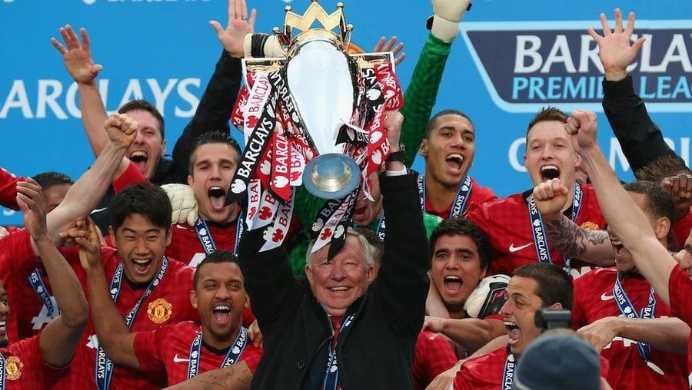
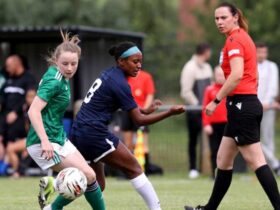


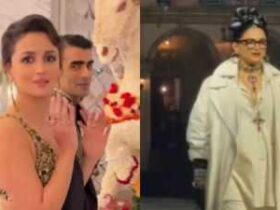
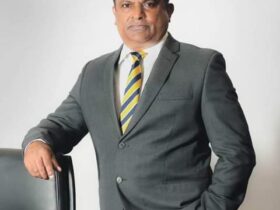
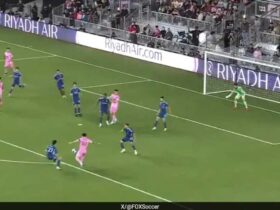
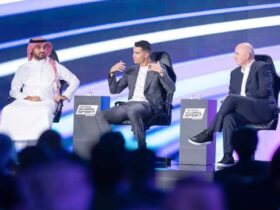
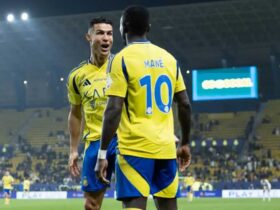

Leave a Reply